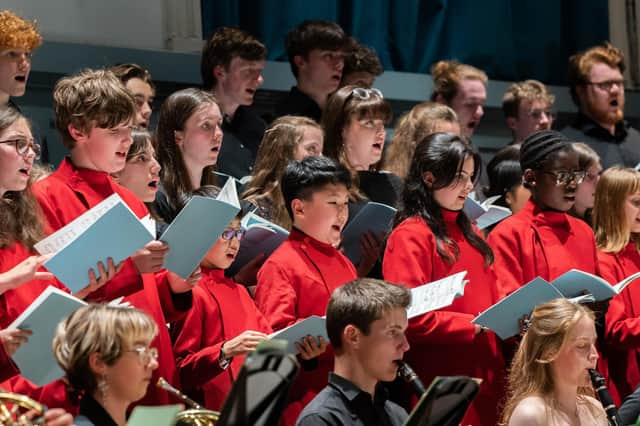Independent Schools Guide: financial assistance ensures sector is as inclusive as possible


Some of the highest fees in the sector can be upwards of £15,000 per term, but many families can benefit from reduced – and often zero – costs towards fees.
In fact, at least 3 per cent of senior pupils receive a free place, according to the Scottish Council of Independent Schools, with more than 24 per cent of families receiving some form of financial help.
Advertisement
Hide AdAdvertisement
Hide Ad“We have a very active bursary department and it is as much about supporting parents who are finding the fee levels insurmountable as much as it is bringing in new pupils from various backgrounds,” explains Liam Harvey, head of St Mary’s School, a preparatory school in Melrose.
“That plays a huge part of what we do and ensures we have a range of people from different backgrounds in the school.”
Means-tested bursaries, which fund some or all of the tuition fees, are based on household incomes and are designed to ensure children who would otherwise be unable to attend an independent school can do so. Parents and guardians should contact the school of their choice as early as possible to find out about the support they could receive.
Wellington School in Ayr is the only independent school in the region and offers day education to boys and girls aged up to 18. Headmaster Simon Johnson maintains: “Fees everywhere have gone up because there are certain expenses, such as cost of teacher employment, over which schools have little control without taking draconian steps.
“But I would encourage parents who have any query to speak to the finance manager. They will have a candid conversation with them and explain the payment options. It could be by the term, over ten months is typical, or it could be over 12 months. We are flexible there.
“We want to talk about removing obstacles and, if they want their child to come here, we would love them to come.”
Some support is offered in the form of a scholarship, which rewards the talents of pupils who have demonstrated outstanding potential in a particular subject.
Fairview International School at Bridge of Allan, Stirling, is the first Scottish school to offer the full uninterrupted continuum of all three core International Baccalaureate programmes, and has scholarships available that can offer up to 50 per cent of costs, says headteacher David Hicks.
Advertisement
Hide AdAdvertisement
Hide AdHe advises parents to be fully informed by creating a relationship with the school early on, saying: “Parents need to realise that it is a commitment. We realise that these days – more than any other time – the cost is not to be taken lightly, so we try to support parents by ensuring our fees are competitive in the sector.
“We are one of the only schools that have made a commitment to freezing our fees for our existing parents at a time when interest rates are high.”
He adds that an independent education is “not out of peoples reach but does demand sacrifices and consideration”, and therefore his school strives to provide the value of that investment.
For more specialist establishments, such as the non-denominational St Mary’s Music School in Edinburgh, the Scottish Government’s Aided Places Scheme provides UK-based instrumentalists with funding towards tuition and boarding costs, which is determined by family income.
Headteacher Dr Kenneth Taylor states: “Around 70 per cent of pupils are covered by the Scottish Government, with several families paying no fees at all, so it is genuinely open for all – regardless of income.
“The school wouldn’t exist without the aided places scheme, because there wouldn’t be enough young musicians if we couldn’toffer support.”
It is imperative that parents and guardians start an open and honest discussion with the school as soon as possible, to ensure they secure the right support for their family and child.
Taylor adds: “If parents are struggling to make payments, we work with them to make it more affordable.”
- This article first appeared in The Scotsman’s Independent Schools Guide on Saturday, 16 September.